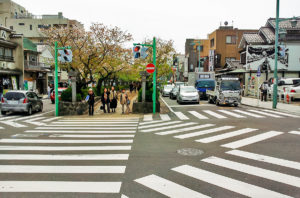#Unstitutions
This module encourages you to reflect upon and rethink educational institutions, the roles they play in communities, and their relationship to ideas of learning. You are also asked to question your own role in the structure or perceived structures of your institutions. A key task in this module is to engage with on-going conversations on this topic concerning the institution, consider new definitions, and collaborate to further these conversations and offer new directions for inquiry and reframing. While the materials are presented in an ordered fashion, this is a result of the structure that we are using to house the information and you are not required to engage with the material in a particular sequence.
Outcomes for the module:
- Become familiar with traditional and non-traditional conceptions of post-secondary structures and their key components: students, faculty, and institutions
- Think critically about traditional approaches to post-secondary power structures and their potential for change
- Ability to interact with various social/digital tools to assist in the display of critical thought
Conversations

Ginny; CC SA 2.0
The Boyer Commission presents ten recommendations for the radical reconstruction of undergraduate education at research universities in the United States offered by a national commission in 1997 (p. 1-9).
Rille Rapper in Tracing Power and Student Subjectivity in Assessment: A Foucauldian Perspective discusses students as consumers and private investigators in higher education and attempts to question the ways in which neoliberal understanding of students as consumers could alter academic domination and disciplinary power in such processes as student assessment.
Martha Burtis in Neither Locked Out Nor Locked In advocates for the need for those in higher education to grapple with how the web, culture, and systems of higher education are inextricably bound together.
Intersections

Atibordee Kongprepan; CC BY-ND 2.0
This space embraces the importance of self-reflection, which is critical to engagement with new concepts but does not require a tangible product.
Here are some questions that emerged in our conversations that were important for our self-reflection
- How do institutions function as sites of learning? Who defines learning?
- How public is the university? Who is included/ who is not included? What does public mean? Who gets to participate?
- What is the goal of the institution?
- What is the history of the place associated with your institution?
- What roles do you hold in the institution and in the community? How do you define these roles? How do they influence your identity?
Reflect on the terms, roles, and “students,” “faculty,” “staff,” and “institutions,” paying particular attention to any intersections between these terms and how these roles influence the ways that participants interact with each other in these contexts.
Future Directions

Theophilos Papadopoulos; CC BY-NC-ND 2.0
EXAMPLE:
The University as an Ecosystem: “The interaction of many kinds of stimuli creates at a university a special kind of intellectual environment, with the health of the whole a manifestation of the health of each part. That environment should become an intellectual ecosystem. Universities are communities of learners, whether those learners are astrophysicists examining matter in the far reaches of space or freshmen new to an expanded universe of learning. The shared goals of investigation and discovery should bind together the disparate elements to create a sense of wholeness.” (Boyer Report, p.9)

- Recognizing what you have gained from the readings and your conversations with other participants, write a short paragraph on what would you change about your pedagogy and teaching practice or your work as a student? How do you engage with others within and outside of your institution?
- Upload your paragraph to Voyant, a web-based reading and analysis tool for digital texts. We have chosen Voyant as a repository for these writings so that participants can have a visual representation of their and others’ works. Beyond the initial visuals provided by Voyant is the ability to examine specific text analysis. Look beyond the word cloud to see the emphasis placed particular phrases and ways of communicating your thought.
- Share what you have learned by using Twitter (#unstitution) or your own social media account
